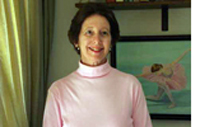Luther’s Fortress, Martin Luther and his Reformation Under Siege, by James Reston, Jr., (Perseus Books Group, 2015)
By Sheila Orysiek

SAN DIEGO — In the time in which Martin Luther lived – 1483 to1546 – it was not difficult to run afoul of the Catholic Church and find oneself either in a dungeon of the Inquisition or at a stake surrounded by flames – or both. For a man, especially an Augustinian friar and a professor of theology to boldly, openly, loudly question the most basic tenets and practices of the Pope and the Church took uncommon courage.
According to author James Reston, Luther was not in favor of physical revolt or of despoiling churches of their religious relics and icons. He wanted the change to be more gradual, as the people slowly embraced the changes. He thought many of the Church’s problems stemmed from the vow of celibacy demanded of the clergy and therefore he was very much in favor of a married clergy but stopped short of making this a requirement.
As a result of his Thesis in which he questioned many aspects of Catholicism, he was eventually excommunicated by the Pope and had to go into hiding. He spent his time writing how he believed Christianity should be practiced as well as translating into German both the Christian and Hebrew Bibles. It was fortuitous that the printing press had come into being.
He was proficient in Greek and Latin but needed help in Hebrew. He claimed that the Jewish Talmudic scholars did not know the true contents of their own Books and that he, Luther, had a better understanding of the Hebrew Bible. He also said that it was his goal to “make Moses so German that no one would suspect he was Jew.”
Eventually, Luther was able to return to public life which included a great deal of preaching. At first he taught a sympathetic view of Jews, expecting them to join him, but as time went on and they did not, he became more and more angered and his vitriol grew more strident. (I cannot bring myself to include Luther’s actual quotes) This was used hundreds of years later by Hitler and the Nazi regime.
Reston presents this negative aspect of Luther only as an “Author’s Note.” It comes a couple of pages after he says: “…….I found myself utterly captivated by the great Reformer: his personality, his courage, his rebellion, the drama of his life, his passion and his honesty, his grace and his coarseness, his wit and humor, and his flaws.”
When I juxtapose Reston’s opinion of Luther, the man, with the viciousness of Luther’s preaching and writing concerning the Jewish community it seems to me that the author has been too “utterly captivated” by his subject.
*
Orysiek is a freelance writer who specializes in arts and literature. Comments may be made in the space provided below this article or sent to the author at sheila.orysiek@sdjewishworld.com